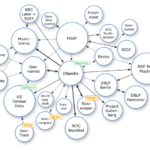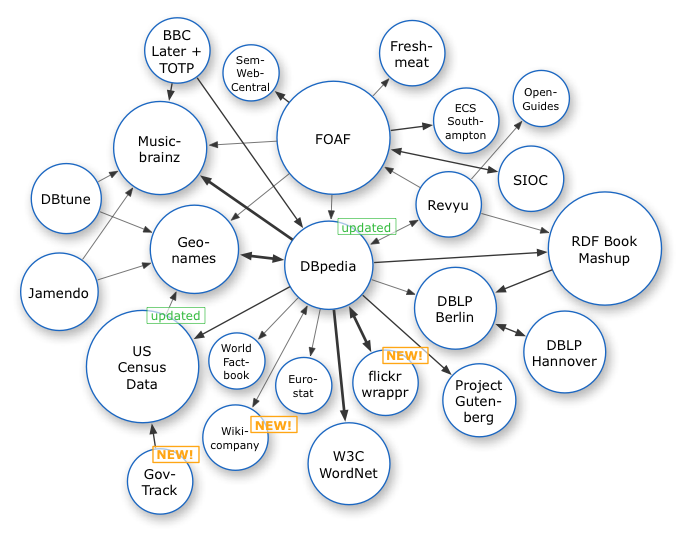Table of Contents
ToggleMachine learning (ML) has revolutionized the way businesses approach their digital marketing strategies, and incorporating it into your SEO strategy can take your online presence to the next level. By leveraging machine learning algorithms, you can gain valuable insights into consumer behavior, optimize your website for search engines, and drive more organic traffic to your site. In this guide, we will explore how you can harness the power of machine learning to supercharge your SEO efforts and stay ahead of the competition.
Types of Machine Learning Algorithms Relevant to SEO
Understanding the different types of machine learning algorithms that are relevant to SEO is crucial for optimizing your digital marketing efforts. Let’s explore the key categories of machine learning algorithms that can enhance your SEO strategy.
| Supervised Learning Algorithms | Unsupervised Learning Algorithms |
| Reinforcement Learning Algorithms | Deep Learning and Neural Networks |
Supervised Learning Algorithms
Machine learning algorithms under the supervised learning category are trained using labeled data. These algorithms learn to map input data to the correct output by making predictions based on historical data. In the context of SEO, supervised learning can be applied to tasks such as keyword classification, sentiment analysis, and click-through rate prediction.
By utilizing supervised learning algorithms, SEO professionals can improve their targeting strategies, enhance user experience, and optimize content for search engines. These algorithms can help businesses better understand user behavior and preferences, leading to more tailored and effective SEO campaigns.
Unsupervised Learning Algorithms
Relevant to SEO, unsupervised learning algorithms are used to analyze and cluster unstructured data without labeled responses. These algorithms can uncover patterns, relationships, and insights within large datasets, helping SEO professionals identify trends and opportunities for optimization.
Algorithms such as clustering and association can be valuable for grouping keywords, segmenting target audiences, and detecting anomalies in SEO performance. Unsupervised learning empowers SEO practitioners to uncover hidden patterns in data that may not be apparent through manual analysis.
More about Unsupervised Learning Algorithms: Unsupervised learning algorithms are especially beneficial for exploring complex relationships within SEO data. By leveraging these algorithms, SEO professionals can gain deeper insights into user behavior, content relevance, and market trends without the need for predefined labels.
Reinforcement Learning Algorithms
A vital aspect of reinforcement learning algorithms is their ability to learn through trial and error. In the context of SEO, these algorithms can be used to optimize website performance, enhance user engagement, and improve search engine rankings over time.
Reinforcement learning algorithms enable SEO professionals to experiment with different strategies and measure the outcomes to determine the most effective approach. By continuously learning and adapting based on feedback, these algorithms can drive continuous improvement in SEO campaigns.
More about Reinforcement Learning Algorithms: Reinforcement learning algorithms are well-suited for dynamic SEO environments where strategies need to be adjusted based on changing conditions and user behavior. This adaptive approach can help SEO practitioners stay competitive and achieve long-term success in the ever-evolving digital landscape.
Deep Learning and Neural Networks
These advanced algorithms can analyze vast amounts of data, identify complex patterns, and make accurate predictions to improve SEO performance.
Deep learning models, such as neural networks, offer unparalleled capabilities for processing unstructured data like images, videos, and text. By leveraging deep learning algorithms, SEO professionals can extract valuable insights, automate tasks, and enhance the relevance of their digital content.
More about Deep Learning and Neural Networks: Deep learning and neural networks represent the cutting edge of machine learning technology, offering powerful tools for SEO professionals to stay ahead of the competition. These algorithms can handle intricate tasks, optimize website performance, and deliver personalized user experiences for enhanced SEO outcomes.
Factors Influencing Machine Learning in SEO
To effectively incorporate machine learning into your SEO strategy, it is crucial to understand the various factors that influence its application in the field. By recognizing and leveraging these factors, you can optimize your SEO efforts and stay ahead of the competition.
Data Quality and Quantity
Influencing the effectiveness of machine learning in SEO, data quality and quantity play a pivotal role. The success of machine learning algorithms relies heavily on the availability of large volumes of high-quality data. Clean, relevant, and diverse datasets enable algorithms to learn patterns and make accurate predictions.
Moreover, the quality of data directly impacts the performance of machine learning models. It is imperative to ensure data accuracy, consistency, and completeness to enhance the predictive capabilities of algorithms. By maintaining high data standards, you can improve the overall effectiveness of your SEO strategy.
Algorithm Complexity and Selection
Factors such as algorithm complexity and selection significantly impact the outcomes of machine learning in SEO. The choice of algorithms depends on the specific goals and requirements of your SEO strategy. Simple algorithms like linear regression may suffice for basic tasks, while more complex algorithms such as neural networks are suitable for intricate optimization processes.
This selection process requires a deep understanding of algorithm capabilities and limitations. It is imperative to evaluate different algorithms based on their performance metrics and suitability for the SEO objectives at hand. By selecting the right algorithms, you can enhance the efficiency and effectiveness of your machine learning initiatives in SEO.
Computational Power and Resources
Data computation power and resources are critical considerations when implementing machine learning in SEO. The complexity of algorithms and the size of datasets require significant computational resources to train and deploy machine learning models effectively. Adequate processing power, storage capacity, and memory are imperative for running complex algorithms and handling large volumes of data.
It is imperative to invest in robust hardware infrastructure and software tools to support the computational requirements of machine learning in SEO. By ensuring access to sufficient resources, you can optimize the performance and scalability of your machine learning algorithms for enhanced SEO outcomes.
Preparing Your SEO Data for Machine Learning
Data Collection
Data collection involves gathering relevant data points such as website traffic, keyword rankings, backlinks, and on-page optimization metrics. It is crucial to collect a diverse range of data that can provide insights into different aspects of your SEO performance.
Preparing a well-rounded dataset for machine learning will help in training accurate models that can predict and optimize your SEO strategy effectively. Make sure to collect historical data as well to identify trends and patterns that can be valuable for algorithm training.
Data Cleaning and Preprocessing
Collection of SEO data often involves dealing with messy and incomplete datasets. Data cleaning and preprocessing are imperative steps in preparing your data for machine learning algorithms. This process includes handling missing values, removing outliers, and standardizing data to ensure consistency and accuracy.
To improve the performance of machine learning models, data preprocessing techniques like normalization, scaling, and encoding categorical variables are necessary. These steps help in preparing a clean and structured dataset that can enhance the effectiveness of your SEO analysis.
To effectively preprocess your SEO data, it is imperative to understand the characteristics and requirements of different machine learning algorithms. Each algorithm may have specific data preprocessing needs, and tailoring your dataset accordingly can significantly impact the model’s performance.
Feature Engineering
Your SEO data may contain raw features that need to be transformed or combined to extract more meaningful insights. Feature engineering is the process of creating new features or modifying existing ones to enhance the predictive power of machine learning models.
By selecting and engineering relevant features, you can improve the performance of your SEO analysis and prediction tasks. Techniques like feature scaling, dimensionality reduction, and feature selection can help in creating a robust dataset for training machine learning models.
Any successful SEO data analysis project relies heavily on the quality of features used in the machine learning process. Feature engineering allows you to extract valuable information from your data and build more accurate models for optimizing your SEO strategy effectively.
Step-by-Step Guide to Implementing Machine Learning in SEO
Here is a detailed step-by-step guide to help you implement machine learning in your SEO strategy.
| Defining Your SEO Goals and Objectives | Selecting the Right Machine Learning Algorithm |
Defining Your SEO Goals and Objectives
StepbyStep one in incorporating machine learning into your SEO strategy is to define clear goals and objectives. Determine what you aim to achieve through your SEO efforts, whether it’s increasing organic traffic, improving keyword rankings, or enhancing user experience. Understanding your objectives will guide the machine learning implementation process and help you measure success effectively.
Once you have a clear understanding of your SEO goals, you can align them with machine learning algorithms that suit your specific objectives. Whether you focus on predictive analytics, natural language processing, or clustering, selecting the right algorithm is crucial for the success of your machine learning implementation in SEO.
Selecting the Right Machine Learning Algorithm
Defining the right machine learning algorithm for your SEO strategy depends on the nature of your data and the complexity of the problem you aim to solve. Regression algorithms may work well for predicting website traffic, while classification algorithms can help with grouping keywords based on intent. It’s necessary to analyze your data and objectives carefully to choose the most appropriate algorithm for your needs.
| Building or Choosing a Machine Learning Framework | Training the Model with SEO Data |
Building or Choosing a Machine Learning Framework
Defining the right machine learning framework is necessary for structuring your SEO data and algorithms effectively. Whether you opt to build a custom framework or utilize existing tools like TensorFlow or scikit-learn, the framework you choose should align with your SEO goals and data requirements. Consider factors such as scalability, flexibility, and computational resources when selecting a framework for your machine learning implementation.
Your machine learning framework serves as the backbone of your SEO strategy, providing the structure and functionality needed to process and analyze data efficiently. By establishing a robust framework, you can streamline the implementation of machine learning algorithms and optimize your SEO performance effectively.
Training the Model with SEO Data
Training your machine learning model with relevant SEO data is a critical step in the implementation process. Gather high-quality data sets that align with your SEO objectives and use them to train your model effectively. By feeding your model with accurate and comprehensive data, you can enhance its predictive capabilities and improve the accuracy of SEO insights generated through machine learning.
With the right data at hand, you can fine-tune your machine learning model to better understand search engine algorithms and user behaviors. Training the model with SEO data enables you to uncover valuable patterns and trends that can inform your SEO strategy and drive better results in the long run.
| Evaluating and Tuning the Model | Deploying the Model to Inform SEO Decisions |
Evaluating and Tuning the Model
Defining the performance metrics and criteria for evaluating your machine learning model is crucial for assessing its effectiveness in improving SEO outcomes. Conduct comprehensive tests and analyses to measure the model’s accuracy, precision, and recall rates. By evaluating and fine-tuning the model based on performance feedback, you can enhance its predictive capabilities and ensure optimal results for your SEO strategy.
Learning from the evaluation process allows you to iterate on your machine learning model and make necessary adjustments to align with changing SEO trends and algorithms. By continuously tuning the model based on performance results, you can optimize its effectiveness in generating actionable insights to drive your SEO strategy forward.
Deploying the Model to Inform SEO Decisions
The deployment of your machine learning model is a crucial step in leveraging its predictive capabilities to inform SEO decisions. Integrate the model into your existing analytics tools and workflows to generate real-time insights and recommendations. By deploying the model effectively, you can empower your SEO team to make data-driven decisions that align with your business objectives and drive sustainable growth.
Data-driven SEO decisions supported by machine learning insights can lead to improved organic search rankings, enhanced user experiences, and increased website visibility. By incorporating machine learning into your SEO strategy, you can stay ahead of the competition and adapt to evolving search engine algorithms effectively.
| Monitoring and Updating the Model Regularly |
Monitoring and Updating the Model Regularly
Continuous learning and adaptation are necessary for maintaining the effectiveness of your machine learning model in SEO. Regularly monitor its performance and update the model based on evolving data trends and algorithm changes. By staying proactive in monitoring and updating the model, you can ensure its relevance and accuracy in generating valuable SEO insights to support your digital marketing efforts.
Tips for Successful Integration of Machine Learning into SEO
Despite the complexity of implementing machine learning in SEO, it can greatly enhance your strategies and outcomes. To successfully integrate machine learning into your SEO practices, consider the following tips:
- Understand the SEO Problem Space
- Choose the Right Tools and Platforms
- Stay Up-to-Date with Algorithm Changes and Industry Trends
- Collaborate with Machine Learning and SEO Experts
Understanding the SEO Problem Space
On the journey to incorporate machine learning into SEO, it’s crucial to understand the unique challenges and opportunities within your specific SEO problem space. By analyzing data patterns and identifying key areas for improvement, you can effectively leverage machine learning algorithms to enhance your SEO strategies and drive better results.
By gaining a deeper understanding of the SEO landscape, you can uncover valuable insights that will guide your machine learning initiatives and help you achieve your SEO objectives more efficiently.
Choosing the Right Tools and Platforms
In selecting the right tools and platforms for implementing machine learning in SEO, it’s vital to consider factors such as scalability, flexibility, and compatibility with your existing systems. By choosing tools that align with your specific needs and objectives, you can optimize the integration of machine learning into your SEO strategy and maximize its impact on your digital performance.
To ensure successful implementation, invest in tools and platforms that offer advanced machine learning capabilities and robust support services to help you navigate the complexities of integrating machine learning into your SEO practices.
To effectively integrate machine learning into your SEO strategy, it’s crucial to stay updated on the latest algorithm changes and industry trends. By monitoring developments in search engine algorithms and SEO best practices, you can adapt your machine learning initiatives accordingly and stay ahead of the competition.
Staying Up-to-Date with Algorithm Changes and Industry Trends
UptoDate with algorithm changes and industry trends is vital for optimizing your machine learning-driven SEO strategy. By staying informed about the latest updates and innovations in the SEO landscape, you can fine-tune your machine-learning models and tactics to align with current industry standards and user behaviors.
Collaborating with Machine Learning and SEO Experts
Changes in the digital landscape require collaboration between machine learning and SEO experts. By fostering a collaborative environment where data scientists and SEO specialists work together, you can leverage their complementary skills and expertise to enhance the performance and effectiveness of your SEO strategies.
Machine learning and SEO experts bring unique perspectives and insights to the table, enabling you to develop innovative solutions and strategies that drive sustainable growth and success in the competitive digital ecosystem.
Pros and Cons of Machine Learning in SEO
| Pros | Cons |
| Improved Search Results | Dependency on Data Quality |
| Increased Efficiency | Complexity of Implementation |
| Personalized User Experience | Cost of Implementation |
| Adaptability to Changes | Need for Technical Expertise |
Pros
Machine learning algorithms can analyze and understand vast amounts of data to provide more accurate and relevant search results to users. This can lead to higher rankings and increased visibility for your website.
Another pro is the increased efficiency that machine learning can bring to your SEO efforts. By automating repetitive tasks such as keyword research, content optimization, and performance tracking, you can save time and resources while achieving better results in a shorter amount of time.
Cons
Machine learning algorithms rely heavily on data to make accurate predictions and decisions. If the data used is incomplete, outdated, or biased, it can lead to inaccurate conclusions and suboptimal results.
Another drawback is the complexity of implementation. Integrating machine learning into your SEO strategy requires technical expertise and resources. From selecting the right algorithms to training the models and optimizing the process, the complexity of implementing machine learning can be a barrier for some businesses.
Decision
It is vital for businesses to weigh the pros and cons of incorporating machine learning into their SEO strategy carefully. While the benefits can be substantial in terms of improved search results, efficiency, and personalized user experience, the challenges of data quality, technical expertise, and cost should not be overlooked. Ultimately, the decision to integrate machine learning into your SEO strategy should be based on a thorough assessment of your goals, resources, and capabilities.
Summing up
Incorporating machine learning into your SEO strategy can revolutionize the way you approach optimization. By leveraging advanced algorithms and data analytics, you can gain valuable insights into user behavior, content performance, and overall website optimization. This allows you to make data-driven decisions that have a direct impact on your search engine rankings and organic traffic.
Furthermore, machine learning can help you stay ahead of the game by predicting trends and adjusting your strategy in real-time. By embracing this cutting-edge technology, you can optimize your SEO efforts more efficiently and effectively, ultimately driving better results for your website and business.
FAQ
Q: Why should I incorporate machine learning into my SEO strategy?
A: Incorporating machine learning into your SEO strategy can help you analyze large volumes of data quickly and accurately, identify patterns and trends that human analysis may overlook, and make data-driven decisions to optimize your website’s performance and rankings.
Q: How can I use machine learning in my SEO strategy?
A: You can use machine learning in your SEO strategy by implementing algorithms that analyze user behavior, predict search engine algorithm updates, automate keyword research and content creation, personalize user experiences, and optimize your website for voice search and mobile devices.
Q: What are the benefits of incorporating machine learning into SEO?
A: The benefits of incorporating machine learning into SEO include improved search engine rankings, increased organic traffic, enhanced user experience, better understanding of user intent, higher conversion rates, and staying ahead of the competition in the ever-evolving digital landscape.












